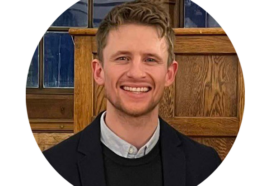The subject area of Child and Adolescent Mental Health (CAMH) can lead to consideration of the world view on the place of children in society and is influenced by many factors. In developing countries, CAMH continues to struggle in terms of capital resources, human resources, infrastructure, geopolitical, and social context, bureaucratic challenges, and the need for advocacy at governmental and non-governmental levels. Globalization and modernization bring new challenges to the attention of CAMH professionals. The role of CAMH professionals becomes that of a multidimensional and well-trained expert, a “Clinician-scientist.” It is a term used to describe specialists who engage in both clinical and research activities, including biomedical, epidemiological, or clinical research (Baumal R, Benbassat J, Van JAD 2014). However, it is a challenge to CAMH professionals to be active participants in being a part of the solution (Sugar JA, Kleinman A, Eisenberg L 1992).
The dearth of CAMH specialists is magnified manifold in developing countries contributing to the global crisis of CAMH workforce shortage (Findling, R.L. and Stepanova, E., 2018). This scarcity is attributed to (but not the only factor) limited training sites as many developing countries do not formally offer fellowship and training programs.
International collaborations make an indispensable contribution to policymaking, especially when experts share similar experiences in terms of the level of economic growth, health system organization, and governmental arrangements. International Elective rotations (IER) are a widely practiced phenomenon globally and can offer a solution to this problem. An example of which is a trainee-led initiative, EFPT Exchange Programme, that is created and run by the European Federation of Psychiatric Trainees (EFPT). This program offers IER placements for psychiatric trainees in Europe (Casanova Dias M et al. 2012). IERs have shown to foster a deeper appreciation for public health issues, professionalism, awareness of cultural and socioeconomic factors, and greater recognition of effective communication skills (Haq C et al. 2000).
Experience of my IER in a developed country: I opted for my CAMH elective rotation at the Maudsley Hospital, England, during my General Psychiatry Residency. This was an enriching experience for an international trainee with limited exposure and understanding of the systems-based practice. I returned with a decision to choose CAMH as my career path. In this clinical exposure, I learned a great deal under the supervision of Dr. Tara Weeramanthr and Professor Jeremy Turk, leading teams of Child Sexual Exploitation (CSE) and CAMH Neurodevelopmental Service, South London and Maudsley NHS Foundation Trust, respectively. During these rotations, I observed assessments and management of cases of child sexual exploitation, including how to spot the possible warning signs of CSE and effective referrals to support services. I also attended comprehensive assessment sessions of children and adolescents presenting Neurodevelopmental disorders, especially Fragile X syndrome. From the academic sessions to the inpatient management- there were learning opportunities in everything. I was fortunate to have engaged in various educational conversations influenced by the multicultural context of the UK, and both of my supervisors extended their support and encouragement.
Insight: For a trainee from a developing country, and IER in a developed country provides exposure to well-defined systems. This experience can nurture the spirit of ‘how can I improve my system or make it better?” It also helps the trainee build a strong academic portfolio and resume. It is thought that an on-site IER at an academic center in a developed country has significant potential for enhancing G-CAMH skills and is one response to a critical global need (Voltas N; Patricia Ibeziako 2013). Most of the Evidence-based practices (EBP) come from developed countries with well-defined health care systems. IERs in developed countries provide a unique opportunity for a visiting trainee to engage in conversations with the experts who synthesize and contribute to international best EB Practices.
Experience of my IER in a developing country: Recently, as part of my Child and Adolescent Psychiatry fellowship, I spent four weeks of IER in the Centre for Child & Adolescent Mental Health (C-CAMH), University College Hospital, Ibadan, Nigeria under supervision of Professor Olayinka Olusola Omigbodun. As a mature trainee, I used this opportunity to seek mentorship while working towards a strategic and well-informed approach to establish CAMH services in Pakistan. During this rotation, I was involved in approximately 35 hours per week of training. That included three courses in the C-CAMH Master’s program, and I observed patient care at five different practice locations. I regularly attended ward rounds. I was also assessed for the courses I took, and I scored well! The most memorable moment was when I gave a presentation on the Day of the African Child, titled: Child & Adolescent Mental Health – Pakistan meets Nigeria. Later, I presented my experience of being a College Psychiatrist and discussed the psychosocial characteristics of Pakistani college students, given the developmental stage and needs of a college-going youth. This was followed by a thought-provoking discussion around the cross-cultural similarities, struggles, and emerging opportunities.
My time at C-CAMH was very well planned and organized even before my arrival at Ibadan. I was greeted and treated as a part of their team. Although there was a language barrier, it did not get in my way of understanding things. The faculty was warm, welcoming, and loyal to teaching ethos and learning doctrine, making the learning experience inspirational. With the students of MSc, I was not only able to learn but have fun. The entire class was incredibly supportive and warm. It was an honour being able to be a part of this community.
Insight: For a trainee from a developing country, IER in a developing country provides exposure to creative leadership skills. Acquainted with similar challenges and on the ground realities, this rotation can largely potentiate trainees’ Cultural Intelligence. Cultural Intelligence is an individual’s ability to work in multicultural settings, make effective in-the-moment decisions, and build meaningful and substantial international networks (Caligiuri et al., 2011, Ang and Van Dyne 2008, MacNab’s 2012, Alon and Higgins, 2005). It is a vital component of creative leadership (Rockstuhl et al., 2011).
CAMH trainees in low resource countries are more likely to get exposed to complex challenges of environmental uncertainty (Thompson, 1967). These situations require the trainee to think out of the box and to revisit and perhaps repackage a previously applied strategy by someone they know in a similar situation with limited resources. This ability of a trainee to think out of the box creates an ‘edge’; to better deal with the complex, unpredictable challenges in the fast-changing world (Jafri et al., 2016).
This rotation experience provides an opportunity to seek mentorship by having conversations with experts who have developed creative solutions in their given cultural context and available services. Besides, it is always reassuring to know that you know someone who has experienced a similar situation; that you can use the ‘life-line’ of ‘phone a mentor’ and ask for help.
Conclusion: Given that 85% of this child and adolescent population live in developing countries (United Nations, 2011), trainees from developing countries can derive tremendous value from participation in IERs in more affluent settings. Such experiences can change attitudes and behaviours regarding the patient-provider relationship (Abedini et al. 2015). The goals of promoting IERs should cultivate a culture of dialogue and long-term bilateral exchange of trainees, resources, and opportunities that would benefit institutions in both developed and developing countries. Exposure to a different health care system than one’s own allows a better appreciation of unique challenges faced by each country (host and parent). This approach can play a significant role in fostering a process of ‘reverse transfer’ or ‘counter-flow’ of knowledge and practice from developing countries to developed countries, thus establishing more meaningful collaborations leading to a global consortium to advance education and advocacy in the field of CAMH. A more nuanced and contemporary perspective emphasizes interdependence and recognizes the many contributions of both resource-rich and resource-scarce nations.
Conflict of interest statement: The author has declared no conflicts of interest in relation to this blog.
Acknowledgements
I would like to specially acknowledge my supervisor and mentor Dr Ayesha I Mian. I am fortunate to have a mentor who has made outstanding and sustained contributions, through teaching, mentorship, and leadership to the field of child and adolescent psychiatry education in Pakistan. In 2016, Dr Mian started the very first Child and Adolescent Psychiatry fellowship program in the country which has become a highly competitive program in Pakistan. As a supervisor, Dr Mian has guided me in how to approach my academic career, and introduced me to the world of academia. She taught me the process of change, and during this journey, she gave to me a book as a present: Our Iceberg is Melting by John Kotter & Holger Rathgeber. Her visionary and value-centered guidance has challenged me to think beyond my clinical responsibilities and look at the bigger picture and continue to be an advocate and make efforts towards improving the mental health for children and adolescents.
References:
- Abedini et al. BMC Medical Education (2015) 15:161 DOI 10.1186/s12909-015-0444-9
- Alon, I., Higgins, J.M., 2005. Global leadership success through emotional and cultural intelligences. Bus. Horiz. 48 (6), 501–512.
- Ang, S., Van Dyne, L., 2008. Handbook of Cultural Intelligence: Theory, Measurement, and Applications. M. E. Sharpe, Armonk, NY
- Baumal R, Benbassat J, Van JAD (2014) Reflections on the current and future roles of clinician-scientists. Isr Med Assoc J 16:475–478
- Caligiuri, P., Noe, R., Nolan, R., Ryan, A., Drasgow, F., 2011. Training, Developing and Assessing Cross-Cultural Competence in Military Personnel. United States Army Research Institute for the Behavioral and Social Sciences, Arlington, Virginia
- Casanova Dias M, Pinto da Costa M, Bausch-Becker N. P-1491—EFPT exchange programme: a new project towards a global future. Eur Psychiatry 2012; 27 (S1): 1 (abstr).
- Findling, R.L., and Stepanova, E., 2018. The workforce shortage of child and adolescent psychiatrists: is it time for a different approach?.
- Haq C, Rothenberg D, Gjerde C, Bobula J, Wilson C, Bickley L, Cardelle A, Joseph A. New world views: preparing physicians in training for global health work. FAMILY MEDICINE-KANSAS CITY-. 2000 Sep 1;32(8):566-72.
- Jafri, M.H., Dem, C., Choden, S., 2016. Emotional intelligence and employee creativity: moderating role of proactive personality and organizational climate. Bus. Perspect. Res. 4 (1), 54–66
- MacNab, B.R., 2012. An experiential approach to cultural intelligence education. J. Manage. Educ. 36 (1), 66–94
- Rockstuhl, T., Seiler, S., Ang, S., Van Dyne, L., Annen, H., 2011. Beyond general intelligence (IQ) and emotional intelligence (EQ): the role of cultural intelligence (CQ) on cross-border leadership effectiveness in a globalized world. J. Soc. Issues 67 (4), 825–840.
- Thompson, J., 1967. Organizations in Action. McGraw-Hill, New York.
- Voltas N, Hernandez-Martınez C, Aparicio E, Arija V, Canals J. S304 Eur Child Adolesc Psychiatry (2013) 22 (Suppl 2): S87–S313. Eur Child Adolesc Psychiatry. 2013;22(2):S87-313. Abstract no: A1-04-03, Title: The Boston Children’s Hospital International Observer Programme, Author: Patricia Ibeziako
- Sugar JA, Kleinman A, Eisenberg L: Psychiatric morbidity in developing countries and American psychiatry’s role in international health. Hosp. Community Psychiatry 43(4):355–360, 1992.



Discussion
Very interesting read, you were very fortunate to have had such a great mentor, Dr.Charchar.
I wish you all the best in your academic carer
Is there a procedure for applying for rotations at the Maudslay hospital,London?
Thanks.
Thank you Dear Allagoa.
It is very important to have an experienced mentor.
For your query regarding rotation applications, you can remain updated with this link: https://www.kcl.ac.uk/ioppn/study/visiting-schemes/medical-elective-placements
Best of luck for your future
ASC